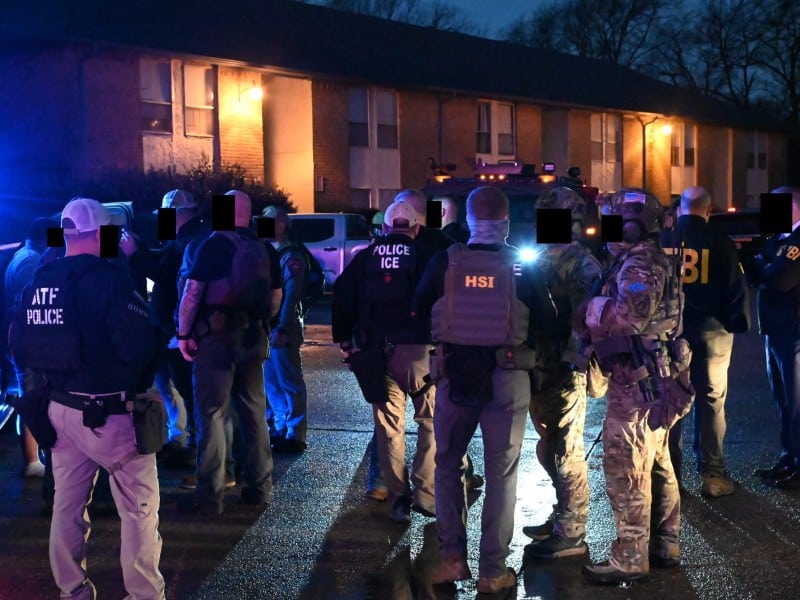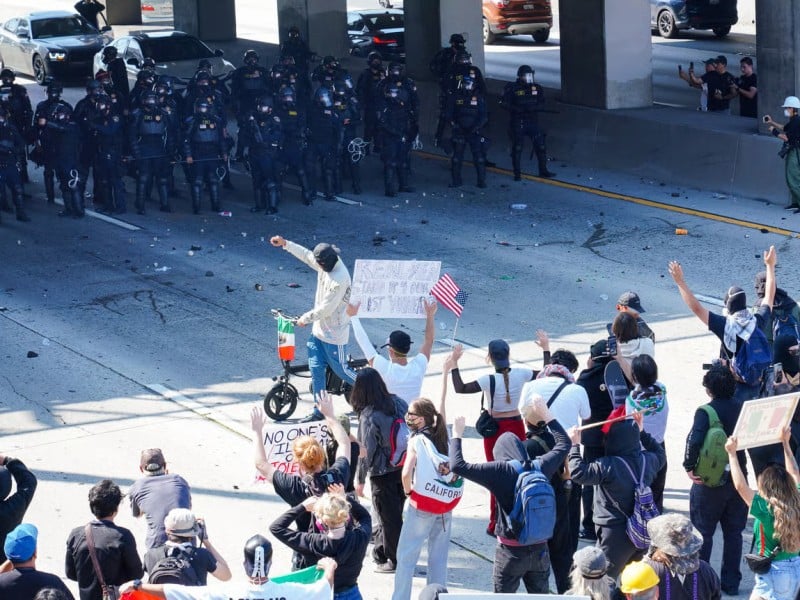How Different Latino Subgroups View the Current 2024 Election
On Tuesday, the Hispanic Federation and the Latino Victory Project released a new poll of Latinos in several battleground states. The poll, which included responses from 1,900 Latinos across eight battleground states, is, so far, one of the more comprehensive surveys of Latino battleground voters in the final weeks before Election Day.

Originally published in The Latino Newsletter–reprinted with permission.
On Tuesday, the Hispanic Federation and the Latino Victory Project released a new poll of Latinos in several battleground states. The poll, which included responses from 1,900 Latinos across eight battleground states, is, so far, one of the more comprehensive surveys of Latino battleground voters in the final weeks before Election Day.
I attached the toplines at the end of my post for anyone to download and review the data, because there are a lot of takeaways.
There is one part of the poll, however, that has me a bit excited because it includes a breakdown of 17 (17!) Latino subgroups across gender, age, country of origin and generations. Here is an image of all those subgroups and what they think about presidential candidates Kamala Harris and Donald Trump.

There are several subgroups where Harris is doing strongly. She is up +35 with Latina women, +36 with Puerto Rican-born Floridians, +32 with Spanish-language households, +30 with Latinos over 50, +28 with people of Mexican descent, +28 with non-Florida Puerto Ricans (hi, Pennsylvania), +25 with second-generation Latinos, +24 with people of Puerto Rican descent overall, +22 with Latinos 30-49, and +20 with bilingual households.
There are several subgroups where the gap is not as wide. Harris is +16 with people of Central American descent, +16 with those of South American descent, and +17 with Latinos 18-29.
When it comes to Latino men, Harris is +10. She is also +10 with 3rd-generation Latinos, and just +8 with English-language households.
Only one subgroup (people of Cuban descent) shows Trump with a lead over Harris. According to the poll, 56% of Cuban respondents see Trump in a favorable light, compared to Harris’ 50%.
These are a lot of subgroups, but they do align with some generalizations about the 2024 Latino vote and presidential preferences. Overall, Harris is up 61%-38% over Trump across the total poll. Still, having this type of subgroup breakdown available is helpful as we head to Election Day. Yes (you already know this), Latinos are not a monolith at all. Now you have some data, instead of national polls that feature just 100 Latino voters.
A press release about the poll also shared these additional takeaways:
- 71% of registered Latino voters are almost certain they will vote in the 2024 Presidential election and that has remained consistent since our poll in August.
- Harris’ emergence has generated growing enthusiasm across key segments of the Latino electorate, with 60% of respondents replying that they are more interested in voting due to Vice President Harris entering the presidential election.
- Cost of living and inflation remains the top issue by a large margin for Latinos in battleground states: 59% cited it as the top issue.
- Jobs (38%) and housing costs and affordability (32%) rank high after inflation for Latino swing state voters.
- Outside of economic concerns, one in four Latinos in battleground states cited abortion and reproductive rights as a top priority issue.
- Other concerns of significance for Latinos in swing states were gun violence (20%), U.S.-Mexico border issues (16%) and access to affordable health care (15%).
- A clear majority (64%) of Latinos in battleground states are reporting contact with campaigns and Latino civic organizations to encourage them to vote.
You can download the complete toplines here.
Editor’s Note: The Latino Newsletter is a ‘La Voz de Mi Gente 2024’ grantee from the Hispanic Federation for the sole purpose of filing stories about the Latino vote in the 2024 election cycle. All stories published for ‘La Voz de Mi Gente 2024’ or that mention the Hispanic Federation are independently determined by The Latino Newsletter and its publisher, Julio Ricardo Varela. The Latino Newsletter operates with full editorial independence and creates strong firewalls, ensuring that all stories are produced solely at the discretion of its team, free from all external influence.




